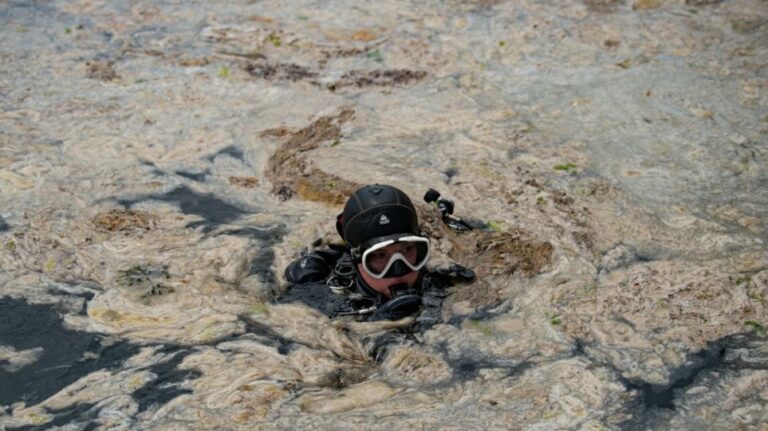The thick layer of marine mucilage that threatens marine life and fishing activity in the Marmara Sea and has caused intense international concern is spreading to the Black Sea.
According to an expert cited by the Hurriyet Daily News, the Black Sea may soon face an equally serious problem as the Marmara Sea, if effective measures are not taken in time.
According to the newspaper, the mobilization of fishermen in the port of Gialikoi in the city of Fatsa in the province of Ordu, near which large quantities of this mucilage were recently found, resulted in the local authorities launching efforts to clean the waters.
Marine mucilage – otherwise known as ‘sea snot’ – has been affecting many bays and harbours along the Sea of Marmara in Turkey.
Read more about this story: https://t.co/B5zNGpeM6J pic.twitter.com/4KQPxTBv3m
— Sky News (@SkyNews) June 7, 2021
“The situation in the Black Sea is not as bad as in the Marmara Sea. But if the infection continues, in three, five or maybe 30 years we will have the same phenomenon in the Black Sea”, explains Mehmet Aydin, a professor at the University of Ordu.
The Dispilio Tablet: The oldest known written text
Marine mucilage, the causes of which were recently explained by Professor of Oceanography and Marine Life Sciences of the University of the Aegean George Tsirtsis, is associated with pollution but also with rising water temperatures, which disrupt the natural system in which organisms live.
According to Turkish professor Aydin, fertilizers used in tea and various fruit crops containing phosphorus and nitrogen end up in the water, creating extreme forms of eutrophication on the shores of the Black Sea and disrupting the marine ecosystem.
“Both the Marmara Sea and the Black Sea are inland seas. The results of these fertilizers can be seen for several years”, the scientist noted.
Ask me anything
Explore related questions





